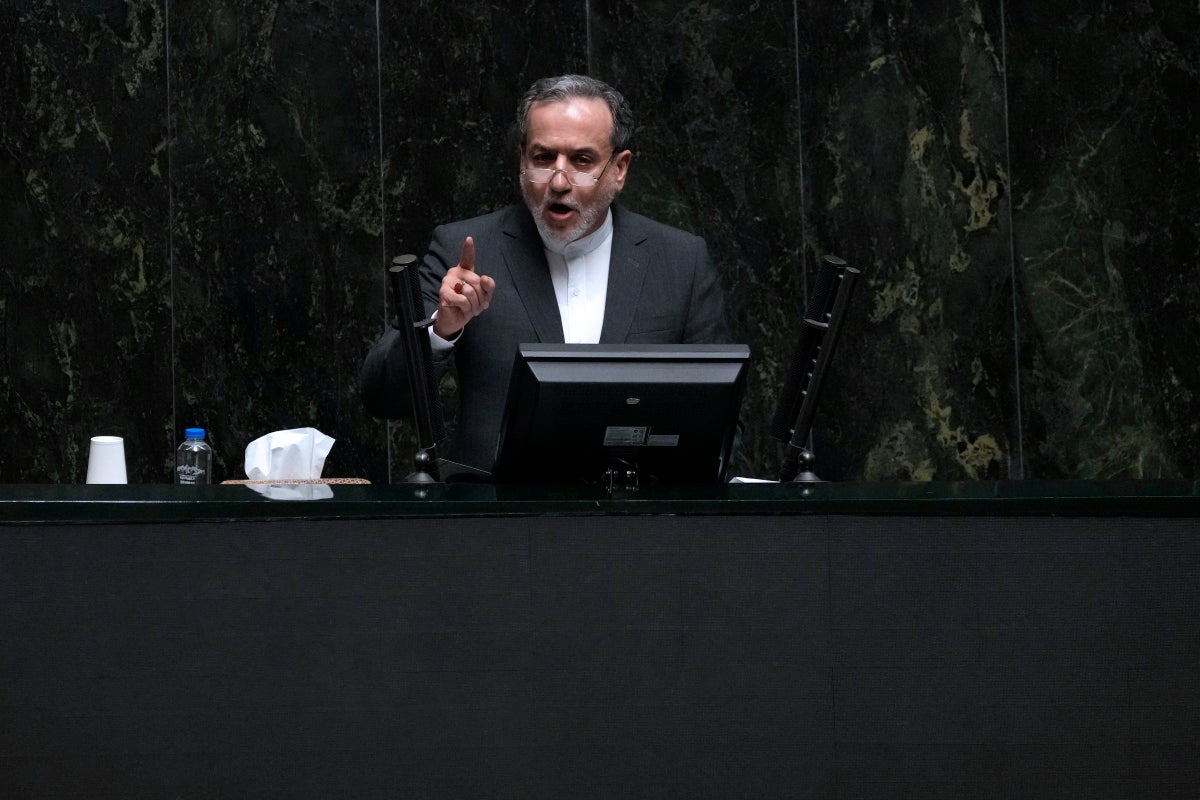
Support truly
independent journalism
Iran’s foreign minister again has referenced his country’s planned retaliation over the assassination of Hamas leader Ismail Haniyeh in Tehran.
Abbas Araghchi said late Sunday he made the remark in a conversation with Italian Foreign Minister Antonio Tajani by telephone.
“Iran reaction to Israeli terrorist attack in Tehran is definitive, and will be measured & well calculated,” Araghchi wrote on the social platform X. “We do not fear escalation, yet do not seek it — unlike Israel.”
Tajani said in a statement he “called for restraint and to pursue a constructive approach, in order to stop the cycle of military actions in the region, which only risks bringing more suffering.”
“It is important that Iran exercises moderation towards Hezbollah in order to avert an escalation on the Lebanese-Israeli border, where Italian soldiers of the UNIFIL contingent are operating, and towards the Houthis in order to avoid an increase in tensions in the Red Sea area, where Italy plays a leading role in the (European Union’s) Aspides mission,” he said in the statement.
Their call came after Israel and the Lebanese militant group Hezbollah, long backed by Iran, traded heavy fire early Sunday but backed off from sparking a widely feared all-out war.
Meanwhile, a round of high-level talks in Cairo meant to bring about a cease-fire and hostage deal to at least temporarily end the 10-month Israel-Hamas war in Gaza ended Sunday without a final agreement, a U.S. official said. But talks will continue at lower levels in the coming days in an effort to bridge remaining gaps.
The official, who spoke on the condition of anonymity to discuss the talks, said lower level “working teams” will remain in Cairo to meet with mediators the United States, Qatar and Egypt in hopes to addressing remaining disagreements.
The talks included CIA director William Burns and David Barnea, the head of Israel’s Mossad intelligence agency. A Hamas delegation was briefed by Egyptian and Qatari mediators but did not directly take part in negotiations.
Here’s the latest:
Israel says more polio vaccines are delivered to Gaza
Polio vaccines for more than 1 million people have been delivered to Gaza, Israel’s military said Sunday, after the first confirmed case of the disease in the territory in a quarter-century.
It was not immediately clear how, or how quickly, the more than 25,000 vials of vaccine would be distributed in Gaza, where ongoing fighting and unrest have challenged humanitarian efforts during more than 10 months of war.
Other polio cases are suspected across the largely devastated territory after the virus was detected in wastewater in six different locations in July.
Aid groups plan to vaccinate more than 600,000 children under age 10 and have called for an urgent pause in the war to increase vaccinations. The World Health Organization and the United Nations children’s agency have said that, at a minimum, a seven-day pause is needed.
The U.N. has aimed to bring 1.6 million doses of polio vaccine into Gaza, where hundreds of thousands of displaced Palestinians are crowded into tent camps lacking clean water or proper disposal of sewage and garbage. Families sometimes use wastewater to drink or clean dishes.







